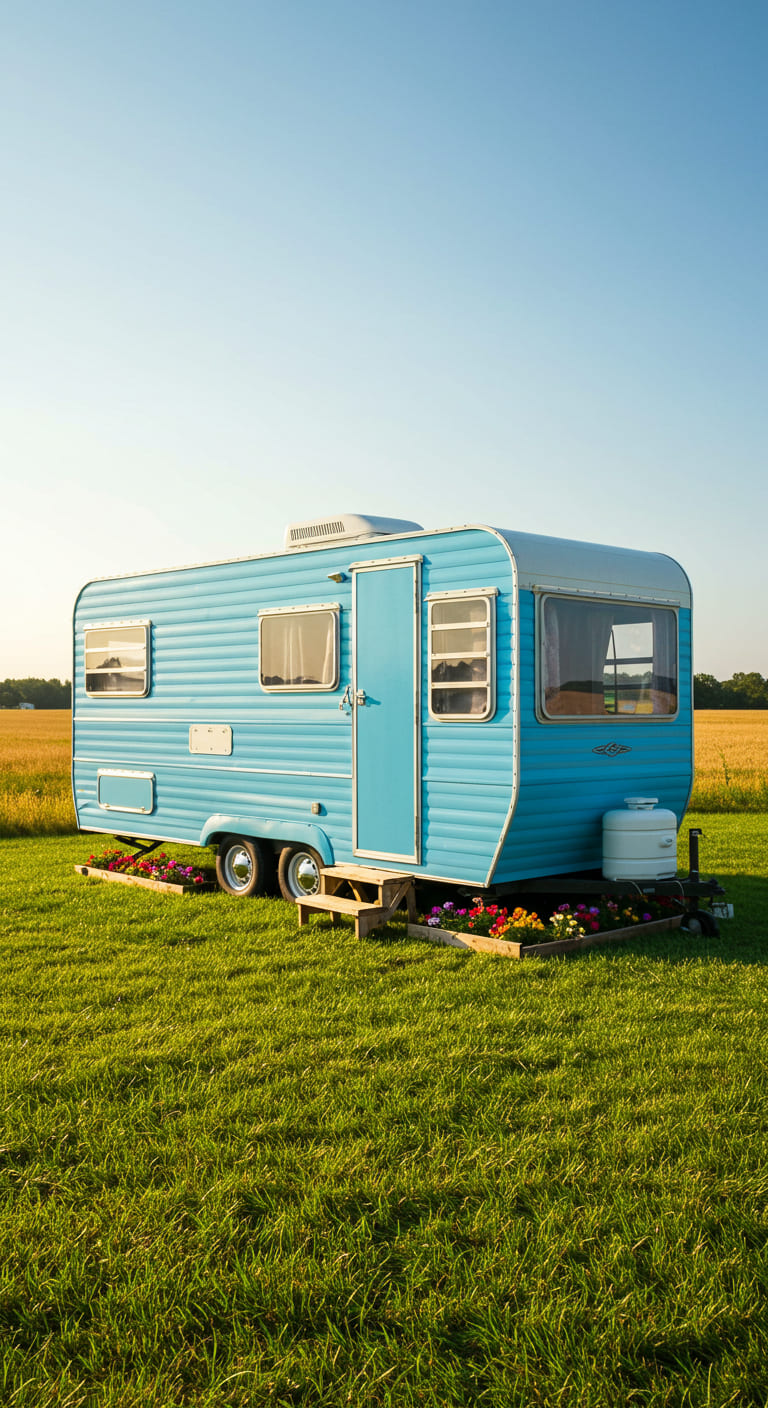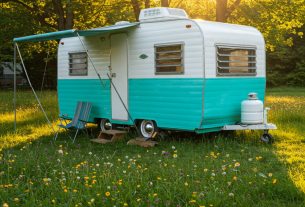As someone who has spent countless hours researching and dreaming about life on the road, I often find myself torn between two popular options: RVs (recreational vehicles) and mobile homes. Both present unique opportunities for adventure and freedom, but they also come with distinct advantages and challenges. In this article, I will delve deep into the world of RVs and mobile homes, weighing their pros and cons to help you determine which option may be the best fit for your lifestyle. Join me as I explore this fascinating topic, and don’t forget to share your thoughts!
Understanding the Basics: RVs vs. Mobile Homes
Before diving into the specifics, it’s essential to clarify what we mean by RVs and mobile homes. While both serve as portable living spaces, they cater to different needs and lifestyles.
What is an RV?
An RV is a motor vehicle or trailer equipped with living space and amenities. RVs are designed primarily for travel and recreation, allowing users to hit the road and explore new destinations without sacrificing comfort. They come in various forms, including:
- Class A Motorhomes: These are large, luxurious vehicles that offer ample living space and high-end amenities.
- Class B Vans: Also known as camper vans, these smaller, more maneuverable vehicles are perfect for solo travelers or couples.
- Class C Motorhomes: A mid-sized option that combines features from both Class A and B, offering a family-friendly layout.
- Travel Trailers: These are towed behind another vehicle and can vary in size and amenities.
- Fifth-Wheel Trailers: A larger trailer that requires a truck with a special hitch for towing.
What is a Mobile Home?
Mobile homes (or manufactured homes) are prefabricated structures that are built in factories and then transported to a permanent location. They are designed to be placed on a specific plot of land, often within mobile home parks or on private property. Key characteristics of mobile homes include:
- Permanent Placement: Unlike RVs, mobile homes are typically not moved frequently, making them more suitable for long-term living.
- Affordability: Mobile homes often offer a more affordable housing option compared to traditional homes.
- Customizability: Many manufacturers offer various floor plans and upgrades to personalize the living space.
Pros and Cons of RVs
Every choice comes with its advantages and disadvantages. Let’s examine the pros and cons of RVs to see if they align with what I’m looking for in my adventure lifestyle.
Advantages of RVs
- Mobility: The ability to travel wherever the road takes me is exhilarating. I can wake up to a new view every day!
- Community: The RV community is vibrant and welcoming, with numerous campgrounds and parks where I can connect with fellow travelers.
- Variety of Options: Whether I prefer a luxury motorhome or a simple travel trailer, there’s an RV to fit my needs and budget.
- Convenience: Many RVs come equipped with kitchens, bathrooms, and living areas, allowing me to enjoy the comforts of home on the go.
Disadvantages of RVs
- Maintenance Costs: Owning an RV can come with high maintenance costs, including tire replacements, plumbing repairs, and engine upkeep.
- Fuel Expenses: Fuel consumption can be significant, especially for larger RVs, impacting my travel budget.
- Space Limitations: Living space can be limited, making it challenging to bring everything I want along for the ride.
Pros and Cons of Mobile Homes
Next, let’s explore the pros and cons of mobile homes as a potential living solution.
Advantages of Mobile Homes
- Affordability: Generally, mobile homes are less expensive than traditional homes, making them an attractive option for budget-conscious individuals.
- Space and Comfort: Mobile homes typically offer more space than RVs, allowing for a more comfortable living environment.
- Stability: Once placed, mobile homes provide a stable, permanent residence, which can be appealing for those looking to settle down.
- Customization: I can personalize my mobile home with various layouts and upgrades, making it truly mine.
Disadvantages of Mobile Homes
- Limited Mobility: Once set up, moving a mobile home can be complicated and expensive, which may limit my ability to explore new areas.
- Depreciation: Mobile homes can depreciate in value over time, making them less of an investment compared to traditional homes.
- Community Restrictions: Many mobile home parks have rules and regulations that may not align with my lifestyle preferences.
Cost Considerations: Which Option is More Affordable?
When considering RVs and mobile homes, cost is a significant factor. Let’s break down the financial aspects of both options.
RV Costs
The initial investment in an RV can vary dramatically based on the type and model. Here’s a rough estimate of the costs involved:
- Class A Motorhomes: $60,000 to over $500,000
- Class B Vans: $30,000 to $150,000
- Class C Motorhomes: $50,000 to $150,000
- Travel Trailers: $10,000 to $50,000
- Fifth-Wheel Trailers: $20,000 to $100,000
In addition to the purchase price, I must also consider ongoing expenses like:
- Fuel
- Insurance
- Maintenance
- Campground fees
Mobile Home Costs
The cost of a mobile home can also vary widely, but here’s a general breakdown:
- Single-Wide Mobile Homes: $40,000 to $100,000
- Double-Wide Mobile Homes: $75,000 to $150,000
- Land Costs: If I plan to place the mobile home on my land, I must factor in the cost of land and potential HOA fees.
Ongoing expenses for mobile homes typically include:
- Property taxes
- Utilities
- Insurance
- Maintenance
Lifestyle Considerations: RVs vs Mobile Homes
Beyond cost, the lifestyle implications of choosing between an RV and a mobile home are crucial. Let’s explore how each option fits into my long-term goals and desires.
Adventure and Exploration with RVs
If I thrive on adventure and spontaneity, RVs provide unmatched opportunities to explore diverse landscapes and cultures. With an RV, I can:
- Travel across states and national parks
- Participate in RV rallies and events
- Meet fellow travelers and share experiences
However, this lifestyle may not be for everyone. The constant movement can become exhausting, and I must be prepared for the challenges of life on the road.
Stability and Community with Mobile Homes
On the other hand, if I seek stability and a sense of community, a mobile home may be more suitable. Living in a mobile home park offers the chance to:
- Build lasting friendships with neighbors
- Participate in community events and activities
- Enjoy a more permanent living environment
However, I need to be aware of the potential downsides, including restrictions and the limitations of a fixed location.
Real-Life Case Studies: RV and Mobile Home Owners Share Their Stories
To gain a deeper understanding of the RV vs. mobile home debate, I reached out to several individuals who have experience with both lifestyles. Here are their insights:
Case Study 1: Sarah, Full-Time RV Traveler
Sarah, a 35-year-old graphic designer, has been living full-time in her Class C motorhome for three years. She loves the freedom it provides.
“I can work from anywhere with Wi-Fi, and I’ve seen so many amazing places! The RV community is so supportive, and I’ve made friends from all over the country.”
However, she acknowledges the challenges of maintaining her RV and the constant need to find new places to park and stay.
Case Study 2: Tom and Lisa, Mobile Home Residents
Tom and Lisa, a couple in their 50s, decided to invest in a double-wide mobile home to settle down. They appreciate the affordability and stability it offers.
“We love having a place to call home. The community is wonderful, and we can decorate and personalize our space as we like. Moving was the best decision for us!”
They enjoy the predictability of their lifestyle but sometimes miss the thrill of spontaneous adventures.
Environmental Impact: RVs vs. Mobile Homes
As the world becomes increasingly aware of environmental issues, it’s essential to consider the ecological impact of RVs and mobile homes.
RVs and Sustainability
RVs can have a mixed environmental impact. While I can choose eco-friendly models and practice responsible camping, they often rely on fossil fuels for travel, contributing to carbon emissions. However, many newer models are designed with sustainability in mind, incorporating:
- Solar panels
- Energy-efficient appliances
- Water-saving fixtures
Mobile Homes and Sustainability
Mobile homes present their own environmental challenges, particularly in terms of land use and energy efficiency. However, they can be more sustainable than traditional homes in some cases, as they typically require fewer resources to build and can often be placed in areas that minimize land disturbance.
Making the Choice: Which Option is Right for You?
Deciding between an RV and a mobile home ultimately depends on my personal preferences, lifestyle goals, and financial situation. Here are some key questions to consider:
- What is my budget for initial and ongoing expenses?
- Do I prioritize mobility or stability?
- Am I looking for a sense of community or a life of adventure?
- How important is environmental sustainability to me?
Conclusion: Your Adventure Awaits!
Choosing between an RV and a mobile home is a deeply personal decision that requires careful consideration of various factors. Both options offer unique benefits and challenges, and ultimately, it comes down to what aligns best with my lifestyle and values. Whether I choose the freedom of the open road or the stability of a permanent residence, I can create a fulfilling and adventurous life that suits my needs.
Now that I’ve shared my insights, I encourage you to take a moment to vote on your preferred option and share your thoughts! What has your experience been with RVs or mobile homes? Join the conversation!
Frequently Asked Questions (FAQ)
1. Can I live in an RV year-round?
Yes, many people choose to live in RVs full-time, but it requires careful planning regarding climate, utilities, and campground availability.
2. Are mobile homes a good investment?
Mobile homes can be a good investment, but they typically depreciate in value over time. It’s essential to consider location and market trends.
3. How do I choose the right RV or mobile home for my needs?
Assess your budget, lifestyle preferences, and long-term goals. Consider visiting dealerships or RV shows to explore different options.
4. What are the maintenance costs for RVs and mobile homes?
RVs may incur higher maintenance costs due to mechanical parts, while mobile homes often require upkeep related to plumbing and structure.
If you found this article helpful, please consider signing up for our newsletter for more insights and tips! Don’t forget to share this with your friends and on social media to spark a discussion about RVs and mobile homes!
Auto Amazon Links: No products found.

Sign up for our newsletter and stay up to date with exclusive news
that can transform your routine!




